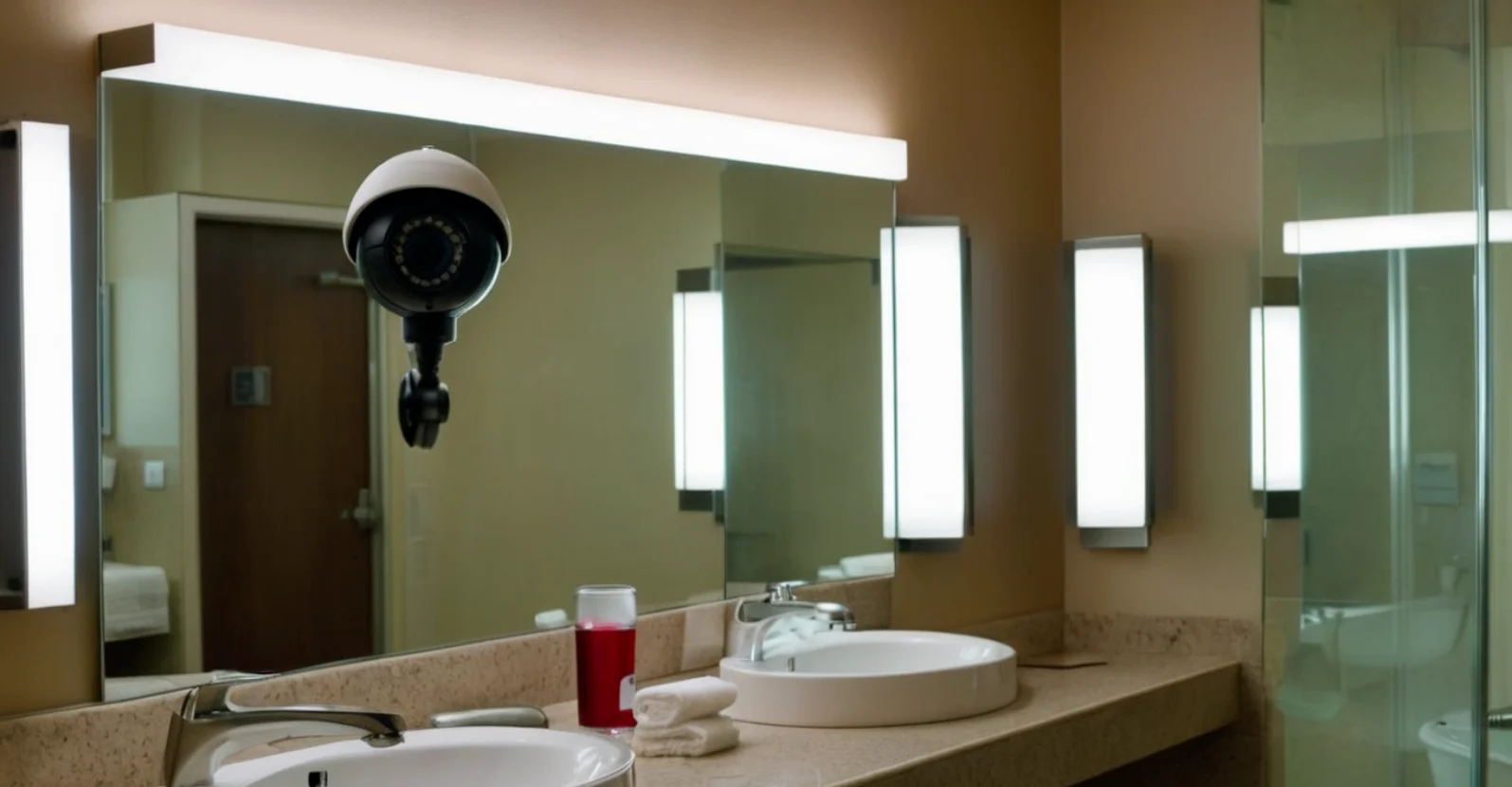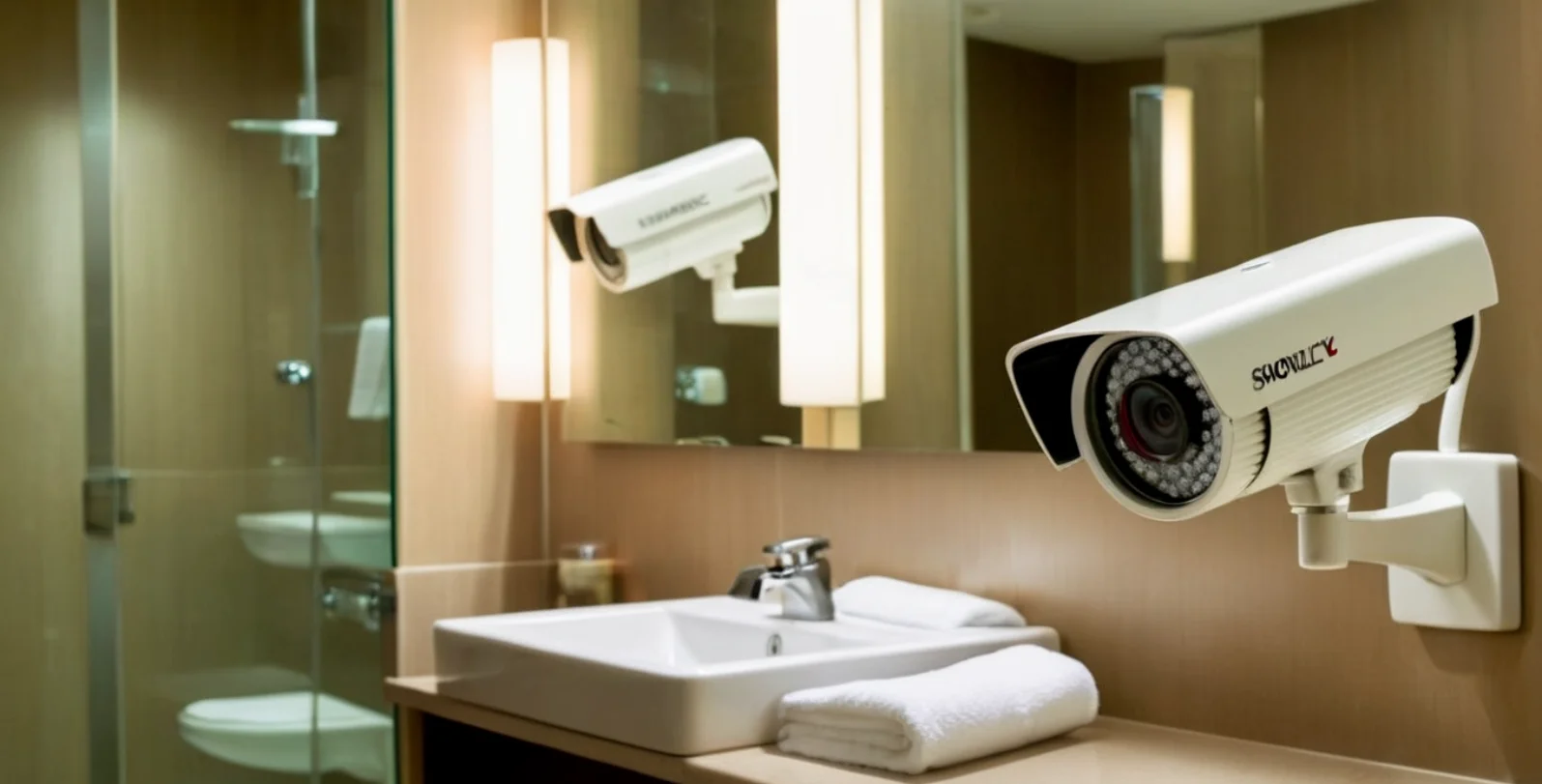Hotel guests expect privacy during intimate acts like bathing, toileting and dressing. Placing security cameras in hotel bathrooms seriously erodes this sanctity. Despite some limited contexts where monitoring occurs, bathroom surveillance remains widely controversial and restricted under the law. Hotels navigating guest privacy, security and liability must tread carefully regarding digital observation of private spaces.
At their foundation, bathrooms are private zones exempt from prying eyes. Guests trust hotels to provide secure facilities free from digital intrusion. Surreptitious filming in hotel bathrooms constitutes criminal invasion of privacy in most jurisdictions. Perpetrators face massive fines and jail time if caught and convicted. Victims also often pursue civil charges resulting in major financial judgements.
However, some hotels have visibly placed security cameras near bathroom entry areas after high-profile incidents of violence, drug use or sexual encounters. While legally questionable, hotel operators claim limited monitoring creates staff security and deters unlawful activity. Guest advocates condemn bathroom surveillance as unethical and unacceptable regardless of disclaimer signs. The debate centers on whether guest safety outweighs bodily dignity.
Legal Restrictions on Hotel Bathroom Surveillance
Federal law provides some protection against hotel bathroom surveillance. Video voyeurism statutes prohibit filming individuals in states of undress without consent on federal properties like national parks. Some hotel chains also operate properties on federal lands where surveillance restrictions apply.
Nearly all states have passed stringent laws banning unauthorized filming in private spaces where people expect seclusion. Hotel bathrooms unequivocally fall under this designation. These anti-surveillance statutes often impose mandatory sex offender registration for convicted offenders along with multi-year jail sentences. Fines reaching hundreds of thousands of dollars may supplement incarceration.

Public Hotel Bathroom Security Cameras
Some hotels have opted to install visible security cameras inside or just outside public bathroom areas. Hotel managers claim monitoring deters drug use, vandalism, trysts and violence in these semi-private spaces. Warning signs posted nearby inform guests they are under watch while using the facilities.
This practice remains legally perilous. Police accusations and scandals have plagued hotels with bathroom cams after guest complaints. Lawmakers in jurisdictions like Hawaii and Wisconsin moved quickly to ban hotel bathroom surveillance following media controversy. While camera policies vary globally, hotels in the U.S. and elsewhere attract immense criticism for digital observation of bathrooms.
Where hotel bathroom cameras exist, strict rules limit their capabilities. Live monitoring is prohibited. Footage must auto-delete within 24-48 hours with no way to copy recordings. Signage must clearly warn guests before entering monitored areas. Video recording is restricted to outside sinks and mirrors and cannot view inside stalls or toilets. Despite such precautions, ethical debates persist around balancing guest interests.
For staff restrooms, employee consent is compulsory. However, implicit coercion may taint agreement. Labor unions typically condemn employee bathroom monitoring as an intolerable invasion of privacy. Tension exists between worker advocates and hotel operators who see surveillance as a risk management strategy. Finding common ground remains challenging.
Hidden Cameras in Hotel Bathrooms
Hotel guests have reported horrifying incidents of finding hidden cameras planted in hotel room bathrooms. Miniature surveillance devices are simple to conceal yet Enable clandestine filming of guests in private moments. Voyeurs see hotel rooms as prime targets for illegal bathroom spying.
If any suspicious device appears in your hotel bathroom, immediately contact the front desk and request a room change. Take pictures of the covert camera for evidence without touching it further. Hidden cameras in hotels should be reported to management and law enforcement promptly. Guests deserve a safe environment without illicit surveillance.
Victims of hotel bathroom spying can pursue justice through legal actions if desired. Consult an attorney to leverage police findings and build a solid case. Lawsuits over hotel bathroom surveillance often end in large financial settlements for distressed plaintiffs. Penalizing negligent hotels holds them accountable while encouraging improved guest security. No hotel guest should suffer the indignity of clandestine bathroom monitoring.
Home Security Cameras vs. Hotel Bathroom Surveillance
Home security systems typically exclude bathrooms from camera coverage. Homeowners understand the huge risks of recording household members partially clothed. The same principles apply for hotel bathroom monitoring. Capturing hotel guests in private, intimate moments creates massive legal liability and social backlash.
Reputable hotels instruct security consultants to keep cameras far from bathrooms when designing surveillance scope. Hotel management relying on bathroom recordings risks devastating financial and reputational consequences. No guests wish to be digitally observed in the nude while bathing or toileting. Hotel bathroom surveillance erodes personal dignity and should be strictly prohibited.
The Limited Case for Ethical Hotel Bathroom Monitoring
Most hotel bathroom surveillance remains indefensible. However, some contexts may ethically warrant discreet monitoring to counter imminent threats. For example, staff can surveil entry areas if reliable indications suggest guest kidnappings or attacks are unfolding inside. Strict necessity and proportionality principles must apply.
Likewise, some hotel chains argue cameras deter sexual assaults in certain nightlife-oriented establishments. Proponents claim monitoring common sinks reduces risks for intoxicated or drugged guests vulnerable to predators. Still, critics question why hotels allow excessive intoxication and don’t instead improve security through staff diligence. The ethics remain hotly disputed.

In summary, hotel bathroom surveillance generates deep unease and vigorous backlash. Guests expect an environment respecting bodily privacy. Digital monitoring fundamentally degrades this refuge. While hotel operators pledge benign intent, abuse potential remains. Strong social and legal norms dictate bathroom surveillance as a last resort restricted only to dire cases where all alternatives fail. Hotels should explore better safeguards that don’t infringe on universal privacy rights.
